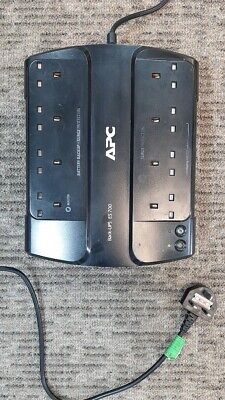- Reaction score
- 0
Hi there
I’m looking for some help as I have what seems to be an electrical issue. It seems to relate to my computer PC, the fridge freezer in my kitchen and my electrical heater.
My computer PC tower is connected to my smart TV so I can use my TV as a PC monitor as well as a TV. The problem I am finding is that when the fridge freezer motor in my kitchen starts up or my electrical heater turns on, my TV screen goes blank (like a black screen) for a second or two and then comes on again. This only happens when I’m working on my PC but it doesn’t seem to happen when I’m watching TV. It’s like a surge of energy causes a disruption in the PC rather than the TV. My concern is that my PC is brand new and I’m worried that this problem will have a negative effect on my PC’s health or will short circuit or something bad like that.
I live in a ground floor studio apartment that comprises of one main living/bed room with an adjoining kitchen and separate bathroom. Everything in my apartment runs on electricity as it is not connected to a gas supply or central heating installed.
That’s the best way I can describe the issue I’m having but if you need more information, I’ll be happy to tell you if you can identify the fault.
Many thanks
Jo
I’m looking for some help as I have what seems to be an electrical issue. It seems to relate to my computer PC, the fridge freezer in my kitchen and my electrical heater.
My computer PC tower is connected to my smart TV so I can use my TV as a PC monitor as well as a TV. The problem I am finding is that when the fridge freezer motor in my kitchen starts up or my electrical heater turns on, my TV screen goes blank (like a black screen) for a second or two and then comes on again. This only happens when I’m working on my PC but it doesn’t seem to happen when I’m watching TV. It’s like a surge of energy causes a disruption in the PC rather than the TV. My concern is that my PC is brand new and I’m worried that this problem will have a negative effect on my PC’s health or will short circuit or something bad like that.
I live in a ground floor studio apartment that comprises of one main living/bed room with an adjoining kitchen and separate bathroom. Everything in my apartment runs on electricity as it is not connected to a gas supply or central heating installed.
That’s the best way I can describe the issue I’m having but if you need more information, I’ll be happy to tell you if you can identify the fault.
Many thanks
Jo







 Taking the cheapskate route, the APC es700 UPS can be had on eBay for around £25. The one below went for £10 with an adequate battery. And a new Lucas battery for it can be bought for £15, so definately under £50. It has half of its 8 socket outlets providing filtered direct mains, and the other half uninterrupted power. So you get the filtered extension lead thrown in!
Taking the cheapskate route, the APC es700 UPS can be had on eBay for around £25. The one below went for £10 with an adequate battery. And a new Lucas battery for it can be bought for £15, so definately under £50. It has half of its 8 socket outlets providing filtered direct mains, and the other half uninterrupted power. So you get the filtered extension lead thrown in!








